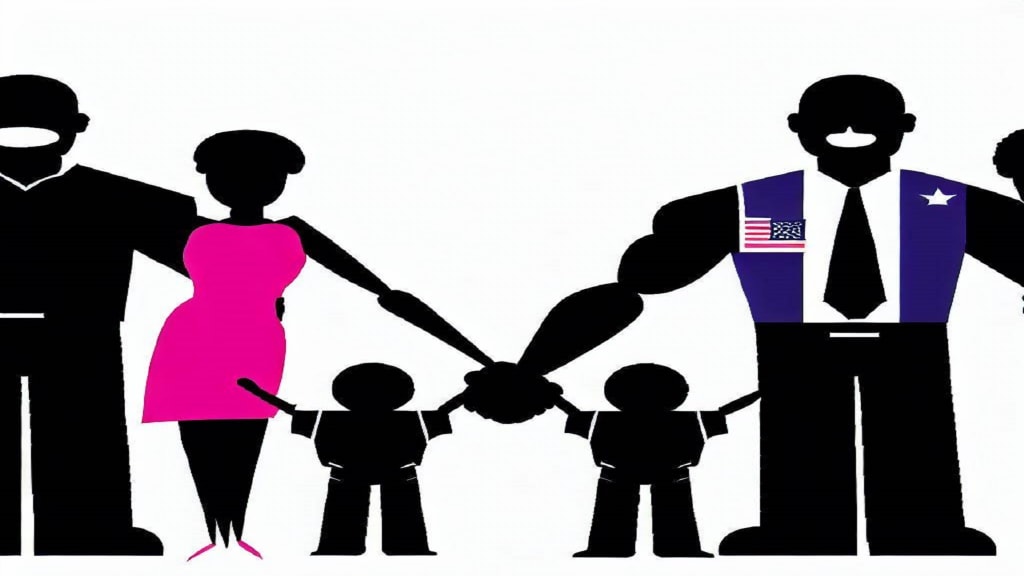Separating Immigrant Families Isn't Just Wrong It's a War Crime
The issue of separating immigrant families has become a pressing and deeply troubling concern

In recent years, the issue of separating immigrant families has become a pressing and deeply troubling concern. Beyond being a matter of immigration policy, it raises fundamental questions about human rights and international law. The practice has stirred public outrage and condemnation from various quarters. This article aims to shed light on the gravity of separating immigrant families, exploring its historical context, the consequences it has on the lives of those affected, and the implications it may have in the realm of international law.
Historical Context of Family Separation
While family separation has emerged as a prominent issue in recent times, its historical roots can be traced back to various periods. Instances of separating families have occurred during times of conflict, colonisation, and forced migrations. Such actions have often resulted in devastating consequences for families and communities.
International law, guided by human rights principles, has sought to protect vulnerable populations, including families fleeing from persecution and violence. The Universal Declaration of Human Rights and the International Covenant on Civil and Political Rights enshrine the right to family unity and protection from arbitrary interference with family life.
The Trump Administration's "Zero-Tolerance" Policy
The issue of family separation gained significant attention during the Trump administration's "zero-tolerance" policy. At the US-Mexico border, families seeking asylum were subject to separation as a deterrent measure. This policy led to the heart-wrenching separation of thousands of children from their parents, sparking widespread public outcry.
Effects of Family Separation on Children
The consequences of family separation, particularly on children, are profound and distressing. Young minds, already grappling with the challenges of migration, experience emotional and psychological trauma due to the sudden separation from their parents. Studies have highlighted the long-term impacts on mental health, development, and relationships with family members.
The International Community's Response
The international community, including human rights organisations and the United Nations, has voiced strong opposition to family separation. The practice has been heavily criticised for its potential violation of international human rights law. The UN has emphasised that such actions may amount to cruel, inhuman, or degrading treatment, particularly when inflicted upon vulnerable populations.
Family Reunification Efforts
Efforts to reunite separated families have been complex and challenging. The lack of proper documentation and the chaotic nature of the separation process have posed significant obstacles. However, several non-profit organizations have been actively involved in assisting reunification and providing support to affected families.
The Biden Administration's Approach
Following the change in administration, President Biden signed executive orders to end the "zero-tolerance" policy and committed to addressing the consequences of family separation. The administration has worked to reunite families and provide resources to support their well-being.
The Argument for Considering it a War Crime
Some argue that family separation should be considered a war crime under international law. While it may not fit the traditional definition of armed conflict, proponents argue that it constitutes a systematic and deliberate attack on a civilian population – a defining feature of war crimes.
Accountability and Justice
Addressing the issue of family separation requires accountability and justice for those affected. This includes holding responsible parties accountable for their actions and providing reparations to families who have suffered.
Perplexity and Burliness in Addressing the Issue
Effectively addressing the sensitive issue of family separation requires a balance between perplexity and burstiness in reporting. The complexity of the topic should not be diluted, while diverse perspectives and storytelling can raise awareness and understanding.
A Call for Global Collaboration
To prevent future occurrences of family separation, global collaboration is essential. Nations must work together to develop compassionate and humane immigration policies that prioritise the well-being of families seeking refuge.
Conclusion
Separating immigrant families is not just a matter of immigration policy; it is a critical human rights issue. The emotional and psychological trauma inflicted on children and their families is deeply distressing and demands urgent attention. As we strive for a more just and compassionate world, it is crucial to recognise the importance of family unity and protect the rights of vulnerable populations.
About the Creator
Zeeshan May
I’m a Creative Content Writer,
I Possesses a Natural Flair for Crafting Compelling and Engaging Written Material.
Website : https://tap.bio/@zeeshanmay/
Email: [email protected]
Twitter : @KasheeeKi/






Comments
There are no comments for this story
Be the first to respond and start the conversation.